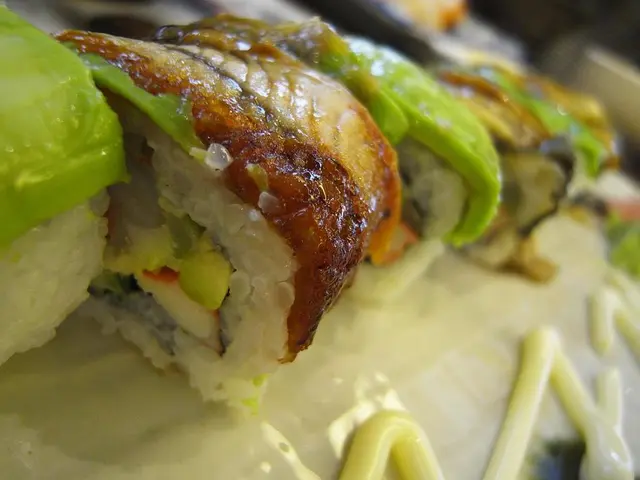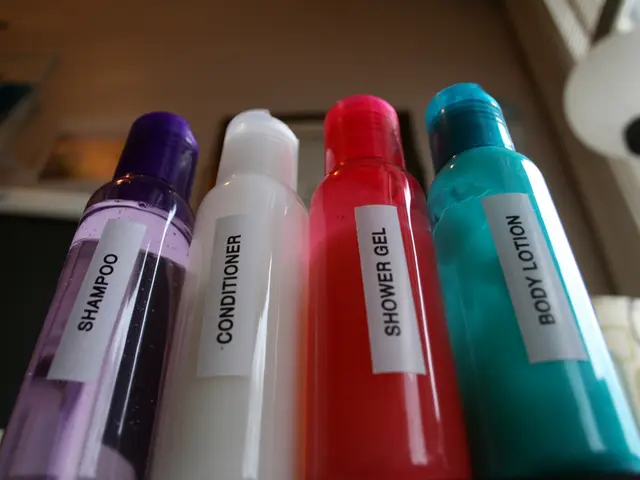Pesticide-Ridden Teas Pulled off Taipei Shelves: A Health Department Crackdown
Tea inspections in Taipei reveal non-compliance of six goods due to pesticide contamination
By a staff reporter
In a shocking revelation, the Taipei Department of Health uncovered six types of tea with sky-high pesticide levels during a random inspection.
The inspection targeted tea-leaf and floral tea products sold at various outlets in the city, including supermarkets, retailers, tea shops, and beverage shops. The Food and Drug Division Director Lin Kuan-chen provided the details.
Out of the 50 items tested, 12 percent or six products failed to pass the inspection. The culprits included two rose tea products, two lavender tea products, a blue tea (Clitoria ternatea, aka butterfly pea tea), and an osmanthus tea product.
Each of these teas harbored one to seven varieties of pesticides at residue levels surpassing the Standards for Pesticide Residue Limits in Foods.
The blue tea, imported as "personal use," dodged the Food and Drug Administration (FDA) inspection as the importer failed to comply with the legal requirements, Lin said. The health department promptly ordered the retailers to yank these questionable teas off their shelves and prohibited further sales.
Because two rose teas and the osmanthus tea hailed from different cities or counties, their respective health departments have been alerted. The origins of the remaining products are within Taipei and shall be dealt with under the Act Governing Food Safety and Sanitation.
According to department data, the blue tea contained residues of harmful pesticides like cypermethrin, fipronil, fipronil sulfone, imidacloprid, metalaxyl, pyridaben, and lambda-cyhalothrin, all in excess of their maximum allowable limits.
Unlawful importing and selling food products can net offenders a fine ranging from NT$30,000 to NT$3 million, Lin stated. Meanwhile, food products with excessive pesticide residues could warrant a fine of NT$60,000 to NT$200 million.
In light of the incident, the department advises tea importers to beef up their food safety monitoring plans, which could involve regular testing of ingredients, semi-finished products, and final products. Retailers are also encouraged to maintain product certificates of origin for improved traceability.
Consumers can report suspected food safety issues via the city's 1999 hotline or call (02) 2720-8889 if they're outside Taipei. The inspection results are accessible on the department's official website.
Under the guise of "Regulations Governing Tea Imports and Sales in Taipei," the city adheres to customs and food safety regulations, as well as a real-name registration system to prevent illegal activities and ensure consumer protection.
Remember, violations of food safety regulations, especially pesticide residues, would likely come with penalties under general food safety laws. The city's regulations aim to uphold consumer safety and curb unlawful trade practices.
- The revelation of six tea types with high pesticide levels, discovered during a health department inspection, serves as a reminder of the importance of adhering to the 'Regulations Governing Tea Imports and Sales in Taipei'.
- The Taipei Department of Health's crackdown on pesticide-ridden teas has shown that food safety regulations, particularly those concerning pesticide residues, are crucial in maintaining health-and-wellness through nutrition and lifestyle choices within the food-and-drink industry.
- Interestingly, one of the failed teas, the blue tea, evaded the Food and Drug Administration (FDA) inspection due to the importer's failure to comply with legal requirements, highlighting the need for stricter compliance with the '食品安全衛生管理法'.
- The various types of pesticides detected in the teas, such as cypermethrin, fipronil, fipronil sulfone, imidacloprid, metalaxyl, pyridaben, and lambda-cyhalothrin, underscores the significance of science and research in ensuring food safety and optimal nutrition.
- By reporting suspected food safety issues via the city's 1999 hotline or calling (02) 2720-8889 if outside Taipei, or accessing the department's official website for inspection results, consumers can actively engage in ensuring the safety of their food and drinks, contributing to the overall health and wellness of society.








